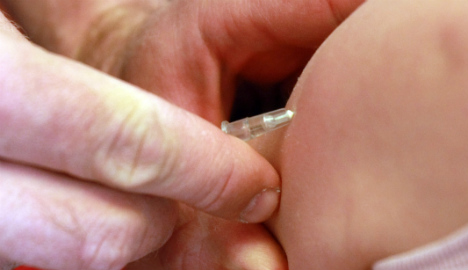The one and a half year old died on February 18 afer being admitted to hospital on February 18.
After a meeting of the city senate's health committee, Health senator Mario Czaja said that "the boy was vaccinated against everything – except against measles," Tagesspiegel reported.
Czaja added that he was in favour of making vaccinations compulsory.
It is the first death in Germany from a measles infection since 2013, when a teenaged boy died from complications due to the virus, which he picked up as a baby.
The Carl-Zeiss-Schule in the south-eastern city district has been closed for Monday to start, with a further cancellation of class possible.
Spokeswoman for the Berlin Senate Administration for Education Beate Stoffers told The Local that there has been one confirmed case amongst the students.
"There is one pupil who is very sick with measles, but the school now has to ensure that the contagious period is over," Stoffers said , adding that the closure was a preventative measure.
Measles is one of the most contagious diseases known to man. The virus can be spread through coughing and sneezing and can live up to two hours on a surface or in an airspace where an infected person coughed or sneezed, according to the US Centers for Disease Control and Prevention (CDC).
Infected people are contagious as long as four days before the appearance of a rash and four days after according to the CDC.
The school is one of the biggest in Berlin with 1,000 pupils.
A play put on by refugees has also been postponed because of the school cancellation. The performance was originally scheduled for Monday evening.
There have been 447 cases of measles confirmed in the first seven weeks of 2015, as Berlin comes to grip with the biggest measles outbreak since 2001, reported the Robert Koch Institute (RKI) earlier this month.
The outbreak is being traced back to a community of refugees from Serbia as well as Bosnia and Herzogovina, where routine vaccinations were not carried out during the Yugoslavian civil war.
Two further schools in Berlin were shut down over measles cases in late 2014 because of this outbreak: One in Kadow and the other in Kreuzberg.
Germany had signed on to the WHO's pledge to eliminate the disease by 2015, but the RKI say that doesn't look possible in light of the current outbreak.
SEE ALSO: Most Germans want mandatory measles jabs



 Please whitelist us to continue reading.
Please whitelist us to continue reading.
Member comments